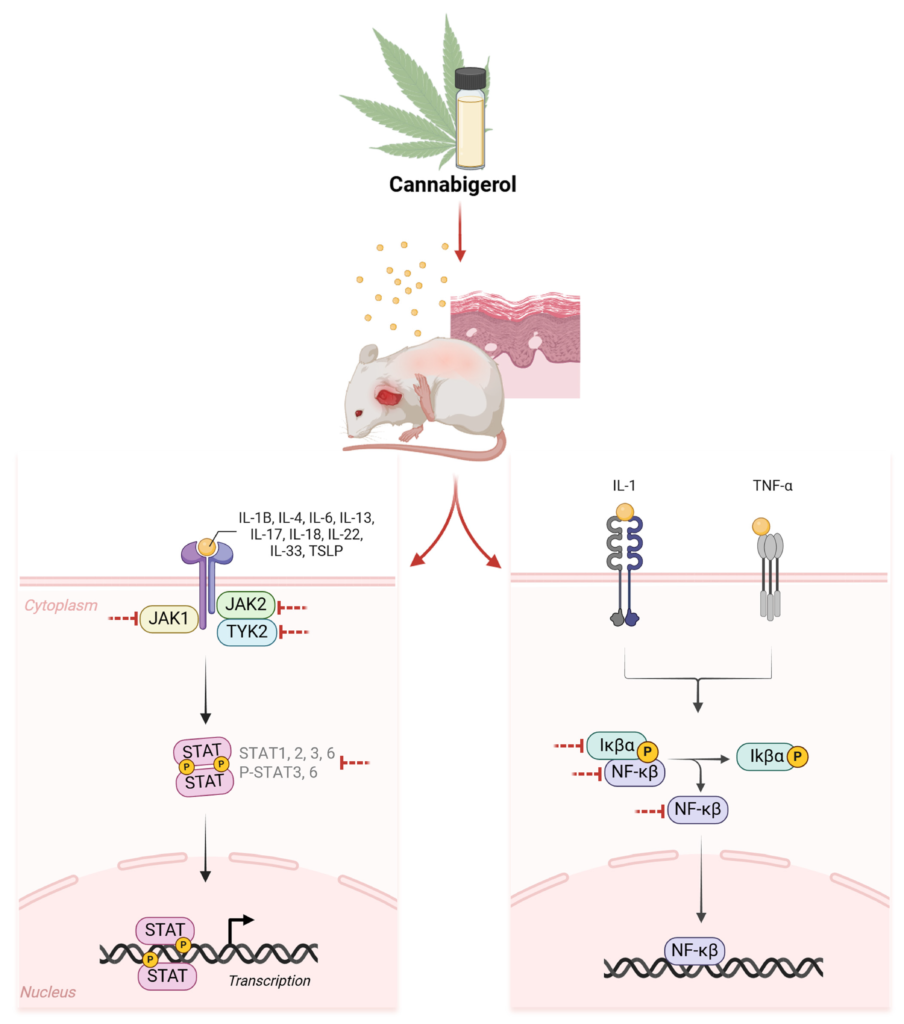Cannabigerol (CBG), a cannabis compound, may help to treat atopic dermatitis (AD), according to a study published in the journal Cells.

Researchers from the Catholic University of Korea used both cellular and mouse models of AD to evaluate the therapeutic effects of CBG. The findings revealed significant reductions in inflammation and improvements in skin health.
In cellular models, CBG lowered the expression of inflammatory markers, including CCL26, IL1B, IL6, and TNF, with results showing strong statistical significance. Mouse models demonstrated similar benefits, with reduced dermatitis severity scores, thinner epidermal layers, and fewer mast cells. The treatment also suppressed inflammatory cytokines such as Tslp, Il1b, Il6, Il17, and others.
The study further identified that CBG works through the JAK/STAT and NF-κB signaling pathways. Western blot analysis confirmed reduced activation of JAK1, JAK2, STAT3, and NF-κB. Notably, these molecular effects were accompanied by improvements in skin barrier integrity and overall clinical outcomes.
“In conclusion, our study demonstrates the therapeutic benefits of CBG in AD models”, states the study. “CBG inhibited some of the inflammatory cytokines and chemokines in AD cell models. In the mouse model, it inhibited inflammatory cytokines and JAK/STAT signaling (Figure 6), which was accompanied by improvement in histological assessments, including skin clinical scores. These results suggest that CBG may also affect the integrity of the skin barrier, including NF-κB signaling, and suggest that CBG is a potential treatment for AD.”

Effects of CBG on AD models. In the DNCB-induced AD model, the JAK/STAT signaling and NF-κB signaling pathways are activated by the combination of various inflammatory cytokines that have been found to have therapeutic effects on AD by modulating the signaling of these pathways. CBG, cannabigerol; AD, atopic dermatitis; DNCB, 1-chloro-2,4-dinitrobenzene.
The study’s full text can be found by clicking here.






